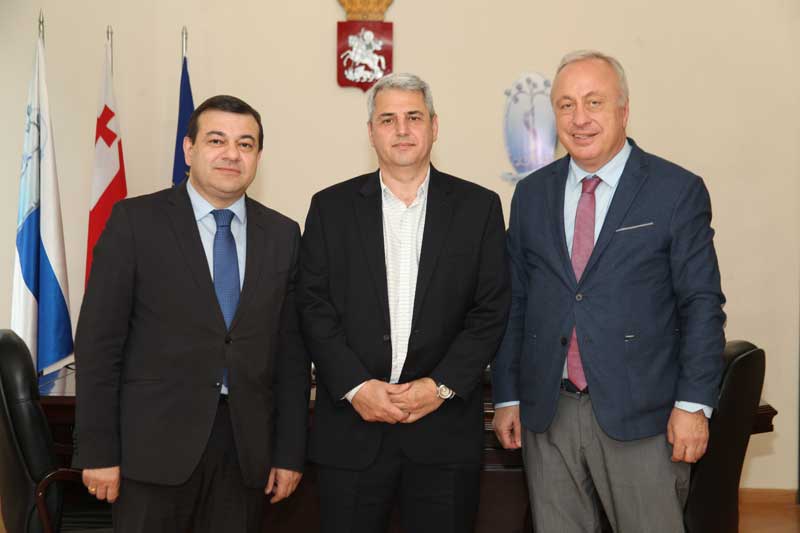On May 31, 2018, at the Tbilisi State Medical University, the Director of POLARIS, Professor Aleksandre Lezhava, Head of the Research Laboratory of the Singapore Genome Institute, Professor Alexander Lezhava delivered a lecture on the influence of genome information during clinical solutions. For years Professor Alexander Lezhava worked as a research director at the ,,Dx assays” in the Diagnostic Institute of Genome, also in the United States, the Ohio State University and the Rikin Institute of Japan, for more than ten years, he led the University Research Laboratory.
Professor Alexander Lezhava's research is the development of new technologies in the field of genome and molecular diagnostics. His publications are printed in various leading scientific journals; He is the author of several scientific inventions. (Scientific inventory owner)
The event was opened by the rapporteur: First Deputy Minister of Labor, Health and Social Affairs of Georgia, Associated Professor Zaza Bokhua and Rector of TSMU, Professor Zurab Vadachkoria.
Professor Aleksandre Lezhava introduced the main aspects of his activities to the society. He pointed out that the purpose of the laboratory is not just to conduct research work but its main value is to bring maximum benefit to the public through the help of science.
By using innovative methods, it is possible to introduce new approaches to TB, Oncological Diseases and Treatment, which is a significant result of POLARIS activities.
Mr. Alexander talked about the latest achievements of genetics such as: transmission studies, clinical sex and molecular diagnosis, liquid biopsy and biomarkers.
According to the scientist, transmission studies and molecular diagnostics, which are actively used in clinical practice after deciphering the genome, are based on the individual approach to treatment of the patient and the development of personalized medicine, which takes place in clinical practice.
According to a Georgian scholar, with the joint efforts of biologists, genetics and practitioners of physiology, the practice of scientific innovations in practice can be a successful fight with a very difficult operation.



